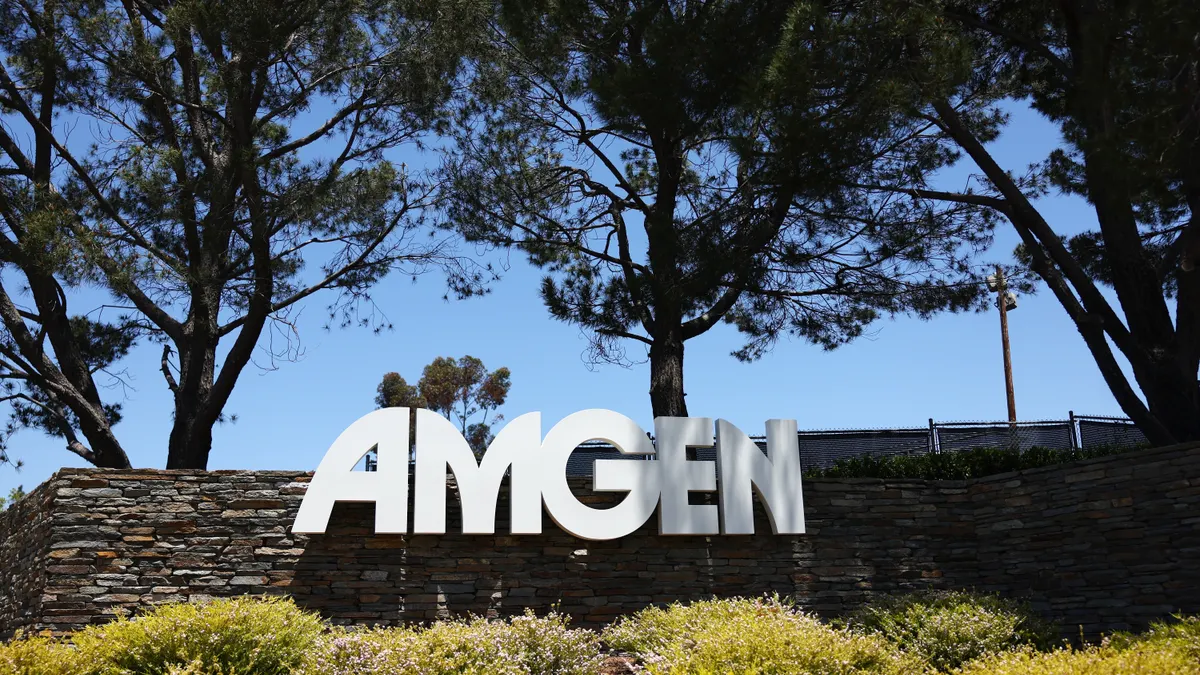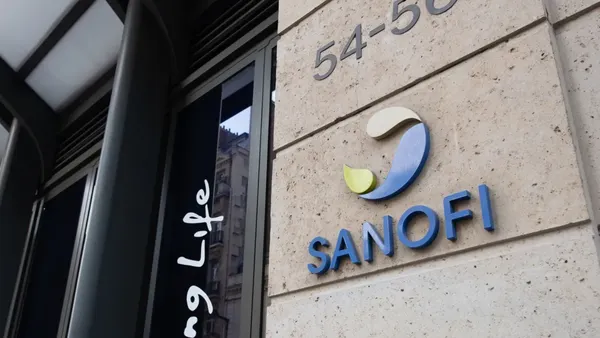Dive Brief:
- Wall Street analysts greeted research announcements from Amgen about two immunology medicines with skepticism, saying the results suggest the drugs won’t pose a major challenge to market leaders.
- Amgen shared the top-line results from two Phase 3 trials during an investor presentation Tuesday. In the first, Amgen’s experimental rocatinlimab showed statistically significant improvement versus placebo for patients with atopic dermatitis, a form of eczema. In the second study, the drug Uplizna succeeded in treating generalized myasthenia gravis.
- But in research notes published following the presentation, analysts called the rocatinlimab results disappointing, saying the drug needed to show an especially high efficacy profile to counter safety concerns. The Uplizna findings, meanwhile, suggest Amgen has a viable second-line contender to treat myasthenia gravis but likely won’t threaten Argenx’s Vyvgart as a first-line choice, analysts said.
Dive Insight:
Amgen is “batting .500 with this update,” Piper Sandler analyst Christopher Raymond wrote in a note to clients. While he called the rocatinlimab data “no bueno,” he said the potential for Uplizna as a second-line treatment in generalized myasthenia gravis could be sizable.
The competitive bar for the markets Amgen is targeting with the two drugs is quite high. Both have approved, effective medicines and a number of companies vying to introduce new options.
Amgen said Tuesday’s announcement is the first of eight study readouts that will build its understanding of the rocatinlimab’s role in eczema. The company, which is developing the drug with partner Kyowa Kirin, is also studying the medicine in asthma and prurigo nodularis.
Though it’s difficult to compare trials conducted in different ways by different companies, analysts said the initial results on rocatinlimab don’t measure up well against Sanofi and Regeneron Pharmaceuticals’ Dupixent. The results are “underwhelming,” especially when there are still questions about safety, Leerink Partners analyst David Risinger wrote to clients.
Uplizna is already approved for a different immune disease, and Amgen is hoping to expand its use. Amgen said it plans to use the latest results, which it termed potentially “practice-changing,” to file for approval in myasthenia gravis and told investors the drug’s 6-month dosing schedule offers a potential competitive edge.
The drug works in a different way than Vyvgart, by binding to a CD19 protein. Though Amgen’s Uplinza data was “lackluster,” it does help show that the approach can be effective, Leerink Partners analyst Thomas J. Smith wrote to investors. And Amgen’s results may clear an “overhang” for competitors including Immunovant, Kyverna Therapeutics and Cartesian Therapeutics, he said.
Amgen shares fell almost 5% in early trading on Tuesday.











